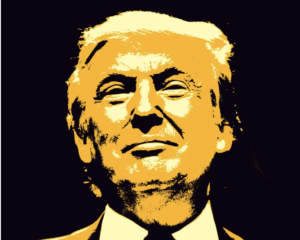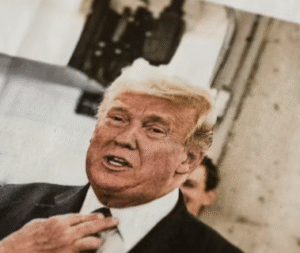#DonaldTrump #CryptoDonations #Bitcoin #Dogecoin #Election2024 #BlockchainTechnology #MAGACoin #DigitalCurrency
In an interesting turn of events, former US President Donald Trump’s presidential campaign announced on May 21st the launch of a fundraising initiative that accepts cryptocurrency donations, facilitated by Coinbase Commerce. This move not only signifies Trump’s departure from his previously skeptical views on cryptocurrencies but also sets him apart from the existing administration’s approach towards digital assets. Supporters of Trump can now use cryptocurrencies such as Bitcoin (BTC), Ethereum (ETH), Solana (SOL), and several others, to contribute to his campaign, adhering strictly to the regulations set by the Federal Election Commission regarding contribution limits and necessary disclosures.
This strategic inclusion of cryptocurrencies in campaign fundraising reflects Trump’s broader agenda to minimize government interference in Americans’ financial decisions, positioning him as a champion of individual freedom against “increased socialistic government control.” The campaign’s narrative strongly opposes the views of prominent Democrats like Elizabeth Warren, who has been vocal about regulating the cryptocurrency sector more strictly. By embracing cryptocurrencies, Trump’s campaign aims to rally his supporters, crafting a narrative of a “crypto army” that stands in stark opposition to Warren’s so-called “anti-crypto army,” highlighting a significant ideological divide on the matter of cryptocurrencies and financial freedom.
However, it is noteworthy that Trump is not the pioneer in accepting crypto donations within the realm of major party nominees, as this announcement may suggest. Senator Rand Paul previously accepted Bitcoin donations in his 2015 presidential campaign. Additionally, Trump’s recent advocacy for cryptocurrencies marks a notable shift from his first presidency, where he frequently expressed skepticism about the digital assets industry. This change aligns with a broader strategic stance against the current administration’s regulatory approach towards cryptocurrencies, suggesting a potentially more crypto-friendly regulatory environment if Trump were to be elected again. The move also underlines the growing influence of digital currencies in political campaigns, signaling an evolving landscape where cryptocurrencies are increasingly becoming mainstream in various sectors, including politics.







Comments are closed.